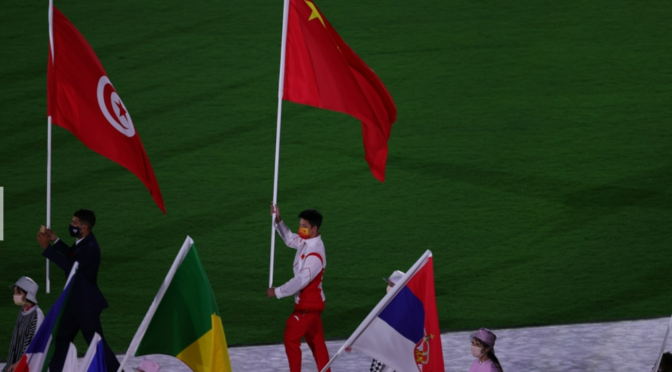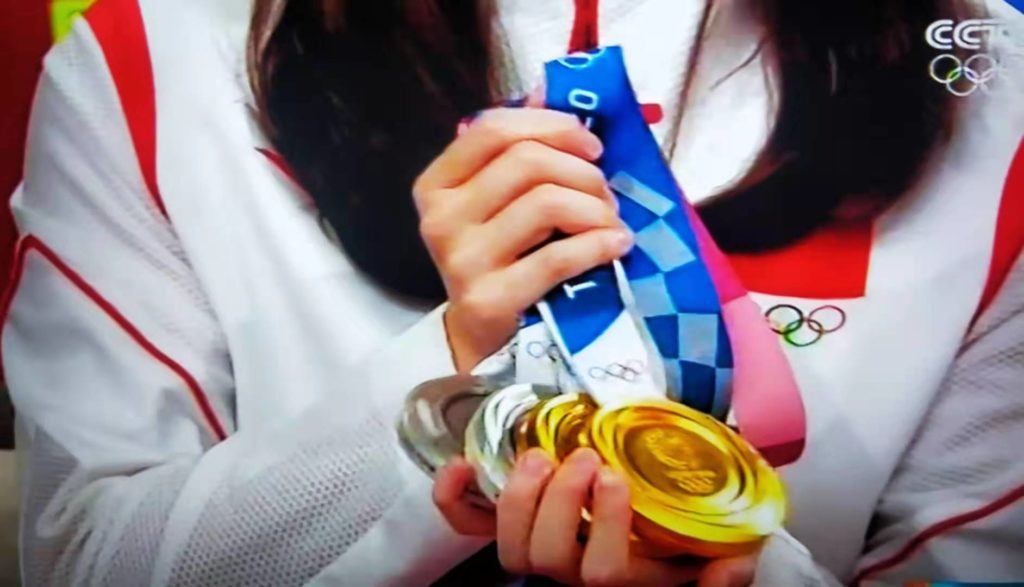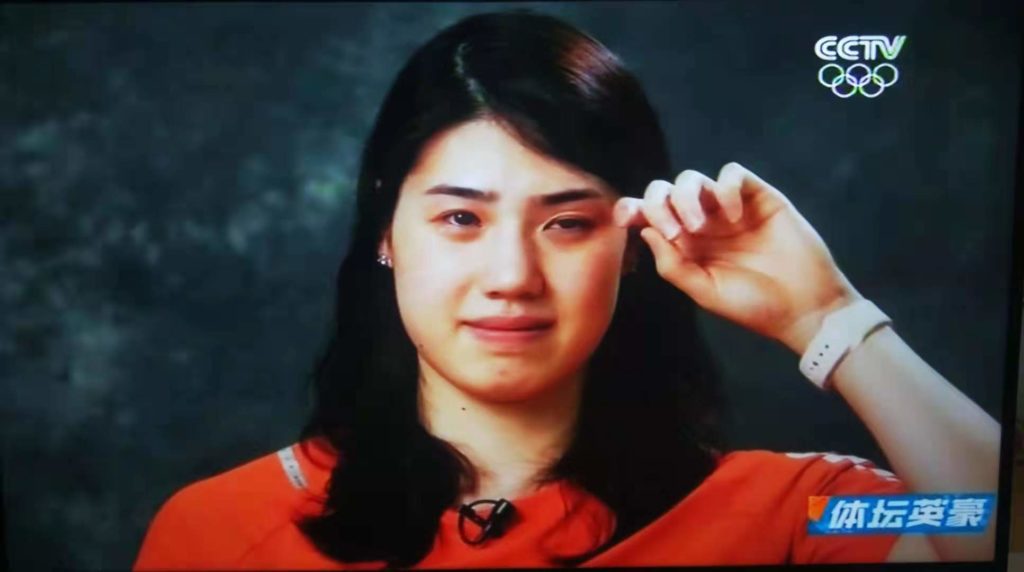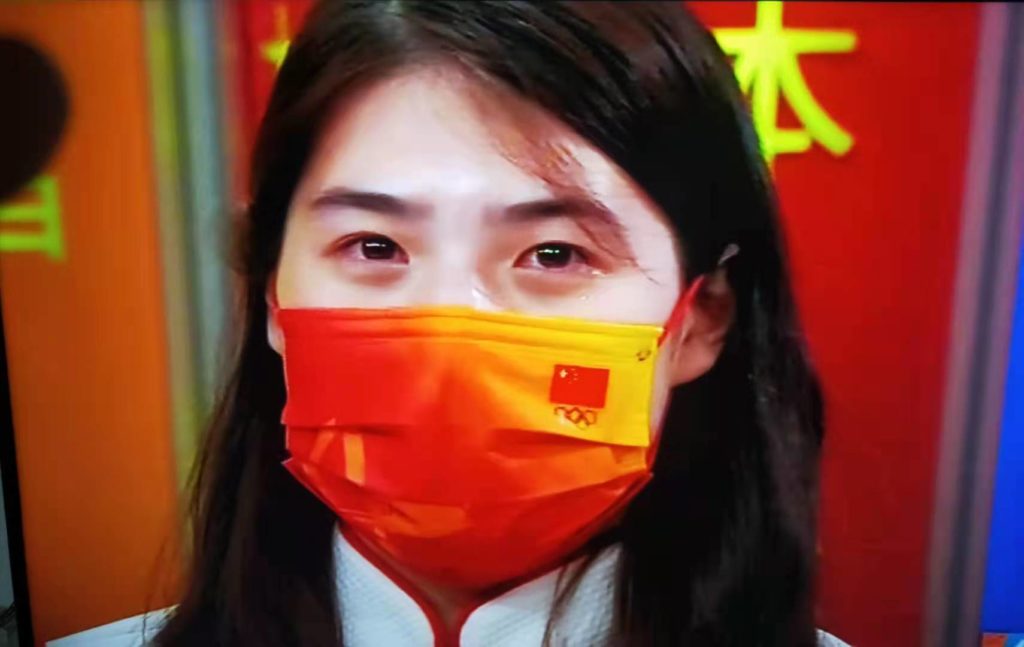Wow.
Apologies for the slight delay in getting this out, but I needed to lie down in a cold, dark room after that frantic finish to the Olympics (and overdosing on Twitter). Going into the final day, we still didn’t know which team was going to come out on top of the medals table. But the US completed a comeback to snatch the win at the death – 39 golds to 38 – despite a tremendous performance from China over 16 days of fierce competition.
Like many others, I had assumed beforehand it would be a fairly comfortable win for the US overall – China, remember, couldn’t even beat Great Britain at the last Olympics in Rio – so when China jumped out into an early lead, it was just a matter of time until the US came fighting back, right? Not exactly…

With four days to go, it looked for the first time that China may actually be able to hang onto its lead. Coming into the final day of competition, China had a two-gold lead, but the US had four chances for gold on Sunday to China’s one, even though only one of them (women’s basketball) was a given. Then, out of (almost) nowhere, American Jennifer Valente won the women’s omnium in track cycling and the US had some room to breathe.
In the end, it was somewhat ironic that the US clinched the Olympic crown thanks to a win in women’s volleyball – perhaps the one gold medal China wanted more than any other. Below are some of the highlights from China’s second week at the Olympics. See highlights from the first week here.
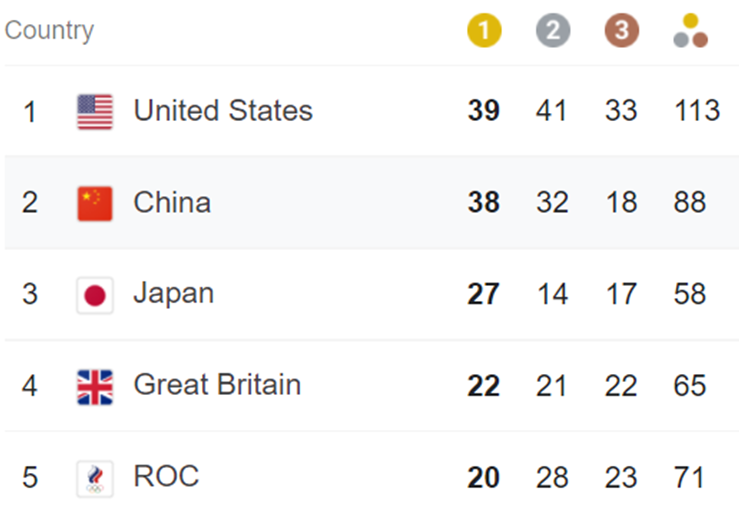
Weightlifting (7)
China added two more from last week for a record seven weightlifting golds. Overall, China had athletes involved in eight of the 10 weightlifting events, from which they had a return of seven gold medals – matching the record set by the Soviet Union at Montreal 1976 for the most at a single Games.
Six of those seven Chinese champions set Olympic records, while Shi Zhiyong also broke the world record. Unsurprisingly, athletes from other countries were heard to say that if China had a contender entered in a weight class, the others were simply competing for the silver. Here’s Wang Zhouyu, who won the women’s 87kg category:
“In our team for weightlifting, when we go abroad for any competition, we want to first display China’s strengths. Chinese athletes, each of them, are here for the gold medal.”
But the sport of weightlifting hit the skids in a big way on Sunday, with news breaking that the Executive Board of the IOC now has the power to remove sports from the Olympics if a “relevant international federation acts in a manner likely to tarnish the reputation of the Olympic Movement” – a move that was specifically made with weightlifting in mind.
The International Weightlifting Federation (IWF) has been warned repeatedly by the IOC to clean up its act when it comes to doping, but has failed to comply, leading to this move, which puts the sport’s participation at Paris 2024 in serious jeopardy. China was banned for a year by the IWF in 2017 for historical doping offences, but in more recent years has been among the nations pushing for reform in the sport.
Tamas Ajan, the IWF’s longtime (and now ex-)leader had promised a “clean” Olympics for Beijing 2008 and London 2012 – but almost 60 weightlifters from those two Games ultimately tested positive, including 34 Olympic medalists. Weightlifting is one of the original nine sports from the first Olympics in 1896, but if the sport is kicked out for 2024, China’s gold tally could take a serious dent.

Diving (7)
China has never actually swept all the diving golds at an Olympics, but it has won either six or seven of the eight events every year since 2004. With four more golds in the second week to add to the three China had already won, it kept that streak alive, winning seven of the eight gold medals available — and finishing both first and second in all four of the individual events. 12 diving medals as well as 11 shooting medals for China were both Olympic records at Tokyo.
14-year-old Quan Hongchan – who would barely make a splash if she bellyflopped – impressed in the women’s 10m platform diving, getting a couple of perfect 10s, and becoming a bit of a minor celebrity back home in China. Quan said after her win that she wanted to earn money to look after her sick mother, and added this in response to another question:
“I don’t think I’m a prodigy. I’m not very bright. I don’t do well in my studies. You ask me all these questions and there’s only a blank in my mind.”
Meanwhile, Shi Tingmao, who now has four Olympic titles to her name (two from Rio and two from Tokyo), was refreshingly open about her past struggles with depression, adding to the conversations at these Olympics about mental health.
There was also some good stuff on the final day of diving competition as Yang Jian‘s final dive got a score of 112.75 – the highest-scored dive ever performed in an Olympic Games – after nailing a forward 4 ½ somersaults in a pike position (meaning he kept his legs straight for the 4.5 rotations), which was the most difficult dive the Olympics Games has ever witnessed, prompting British diver – and knitting supremo – Tom Daley to call him “almost superhuman”.
But teammate Cao Yuan produced a fantastic reply to edge Yang for the gold by one point. Yang was not at all happy and the two barely even acknowledged each other afterwards, though they did parade a Chinese flag together (albeit in near silence), before addressing their “internal competition” at the press conference afterwards that drives them to greater heights in training.
In fact, China’s relentless diving training also got a mentioned from Xie Siyi, who won gold in the men’s individual and sychronized 3m springboard:
“It’s very boring. We go from the dormitories to the training center, we go to eat, we go back to the training center, then we go to sleep. It’s very boring, and we do every day the same thing, so we have to boost each other.”
Boring it may be, but it’s a formula that has seen China dominate over many years, so don’t expect it to change anytime soon.
Gymnastics (4)
Three more gold medals made for a much better second week for China in the gymnastics, with a final return of 11 medals (4 gold, 5 silvers, 1 bronze), the only other sport (in addition to diving and shooting) to get more than 10 total medals.
The best part of this was the interaction between the US and Chinese gymnasts, with American Sunisa Lee – who won the individual all-around after teammate (and expected winner) Simone Biles withdrew from most of the competitions in Tokyo – in particular posting multiple pictures on social media of her with Chinese gymnasts Guan Chenchen and Tang Xijing, as well as visibly cheering them on during competition.
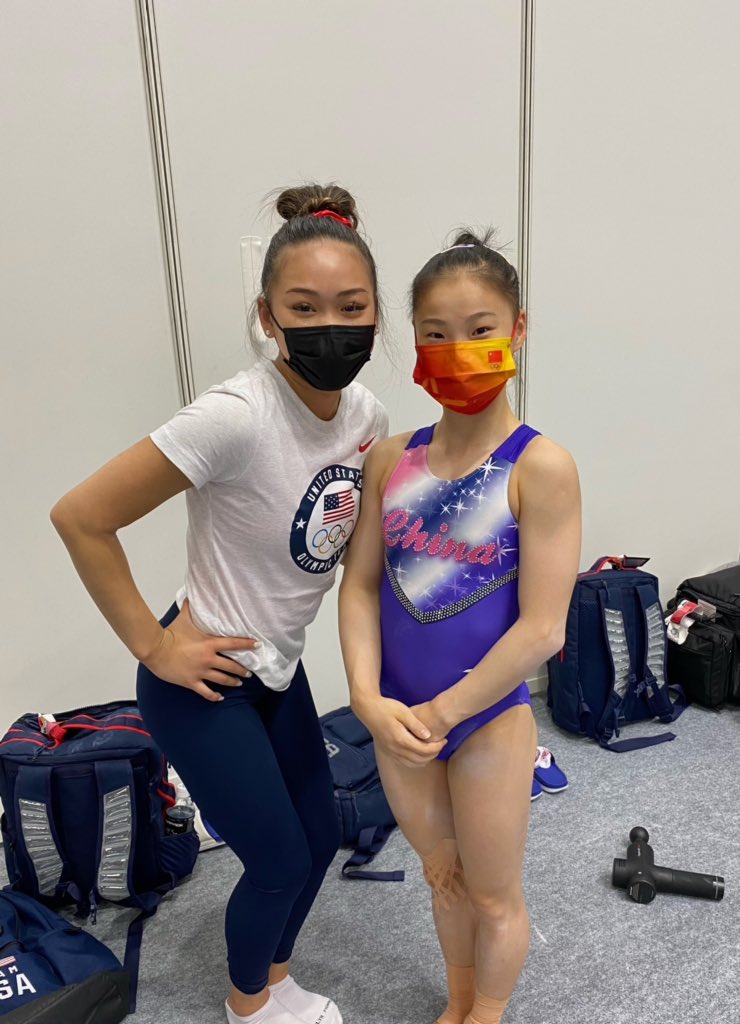
Athletics (2)
China won two gold medals in athletics: Gong Lijiao, who, as expected, won the women’s shot put, and Liu Shiying, a somewhat surprise winner in the women’s javelin. Gong’s story is nice: while she came into Tokyo with Olympic silver and bronze medals, she never actually had a chance to celebrate them at the time – a 5th place in Beijing was later upgraded after two athletes were disqualified for doping and a 4th place in London was later upgraded to a silver for similar reasons. Then, in Rio, she finished 4th and cried all the way back to the airport for her flight home to China. So Tokyo was her third Olympic medal (completing the full set), but the first time she actually stood on an Olympic podium. She also drew a lot of support back home after Chinese reporters asked her, essentially, when she planned to give up this sporting nonsense and start a family.
But there was a much bigger story in athletics for China. Sprinter Su Bingtian lined up in the 100m semifinals for what was the most open competition in years. His start was simply stunning – he was miles ahead by 30m, and he hung on to finish in 9.83 seconds, the fastest time across both heats, breaking his previous PB of 9.91s and becoming the first Asian man to qualify for the Olympic 100m final. I’ve been critical of Su Bingtian in the past – perhaps unfairly, but largely because the Chinese media had hyped him far beyond his talent in their desperate quest to anoint the next Chinese track star. But this race finally justified that hype.
Unfortunately, he couldn’t repeat that form in the final, finishing sixth after a poor start from which he couldn’t recover, but his performance was lauded throughout China, with his semifinal run on virtual repeat for several days. To illustrate that point, he was selected as China’s flagbearer for the Closing Ceremony (see the headline picture above), over all of the country’s medalists, which tells you everything you need to know about how his performance was received.
To their credit, Chinese media ran several stories about his American coach Randy Huntington, who has trained Su for the past seven years. I’ve banged this drum before – and I’ll continue to do so – but it’s amazing what can be achieved when a long-term plan is actually implemented to completion. Chinese football – and many others besides – should take note.
Other golden totals:
- Table Tennis (4)
- Shooting (4)
- Swimming (3)
- Badminton (2)
- Rowing, Sailing, Fencing, Cycling, Canoeing (1 each)
I covered most of the above last week.
Some Closing Thoughts
A couple of stats of interest: 58% of China’s gold medals were won by women, as were 53% of all China’s medals. Now, given that around 67% of China’s athletic delegation was female, you could argue that the men actually outperformed expectations, but also bear in mind that a sizable percentage of the women were in team sports who did not win a medal (volleyball, water polo, football, basketball etc), and had outperformed the men simply by being in Tokyo in the first place.
One of those women was swimmer Zhang Yufei, who left Tokyo with two golds and two silvers and was immediately groomed as China’s next household name. Check out the pictures below, during a rare 1-on-1 interview on Sunday afternoon on CCTV’s sports channel, with well-known host Zhang Bin (who, incidentally, was famously interrupted by his wife on stage during the launch of CCTV’s 2008 Olympics coverage, who revealed he’d been having an affair), complete with tearjerker interview questions. The “Not Gonna Cry” scene from Jerry Maguire, anyone?
I’ve been largely distracted by Tokyo over the past month or so, but there’s lots to talk about with regards to Beijing, to which I’ll turn my attention shortly. If this New York Times piece is anything to go by, though, it looks like we’re in for the Joyless Olympics next February.
And if you haven’t yet got your fill of Dreyer + China + sports (surely not), you can read some quotes here, watch a TV discussion here and listen to the latest China Sports Insider podcast here.
To keep up-to-date with all the latest news from China Sports Insider, please click on the “SUBSCRIBE” button in the top right corner of this page (or see below on mobile version). Follow along on Twitter for regular updates.

